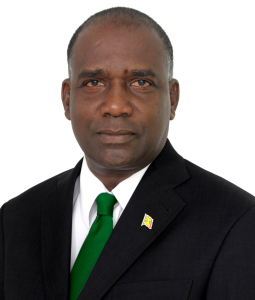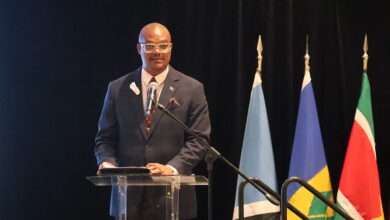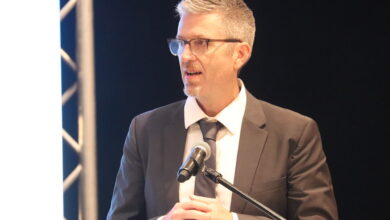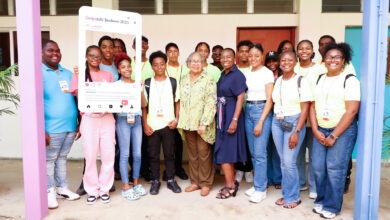– Caricom high-level forum hears
Participants at a high-level meeting on Monday underscored the need for increased advocacy for more official commitment to statistics and the mobilisation of additional resources for the field.
Those were among the issues that stakeholders in the field of statistics identified as critically important to the overall development of the Caribbean Community (Caricom).
Senior Government officials, decision-makers, statisticians, and representatives of international organisations gathered for the one-day, intense, high-level advocacy forum on statistics in St George’s, Grenada.
Lack of sufficient funding, lack of a statistical culture and inadequate succession planning were identified as some of the major challenges in the field.
At the forum’s opening ceremony, and during the panel discussions that followed, investment in the field was recognised as imperative to its further development and the ability to translate statistics to good decision-making, nationally and regionally.
This was particularly obvious, they recognised, in the context of the economic challenges facing the region and efforts to reduce poverty; the negotiations for the Post-2015 Development Agenda; and the community’s commitment to meeting the Millennium Development Goals (MDGs).
Leading the charge in acknowledging the necessity for increased advocacy, Grenada’s Prime Minister, Dr Keith Mitchell, urged participants to use him as an advocate.
“As a person trained in this field myself, I do feel a heightened sense of responsibility to ensure that we raise the bar of this important variable in the advancement of our region,” he said.
He added that he looked forward to being an advocate for the conclusions from the forum in Caricom and elsewhere. Prime Minister Mitchell also sounded the call for more resources to be allocated to statistics, and advanced the recommendation of a regional approach to help optimise scarce resources.
More govt funding
Grenada’s Economic Development, Planning, Trade, Energy and Cooperatives Minister Oliver Joseph, echoed the call for more government funding to be allocated to sourcing data. He also stressed the need for common standards throughout the region and partnerships with the governments, private sector, non-governmental organisations so as to generate an appreciation for statistics and its impact on development.
There was need to involve everyone so there was a clear understanding about how figures were arrived at so there could be broad-based acceptance, he reasoned.
The importance of the creation of partnerships was also underscored by Statistical Institute of Jamaica Director General Carol Coy.
“We have to improve what we are doing; we have to make ourselves relevant to attract funding and the support that is needed and partnerships are critical,” she said during the final session of the forum.
Grenada’s Director of Statistics Halim Brizan said greater investment in statistics would ultimately lead to better decision-making which, in turn, would lead to better development outcomes. He called for the creation of the appropriate environment to develop statistics
The value of data could not be underestimated and investing in it would yield long-term and short-term returns, Operations Officer of the Caribbean Development Bank (CDB), McDonald Thomas, said. He outlined the bank’s intervention in regional statistics and gave the commitment to continue to support its borrowing members to boost their statistical capacity.
“CDB recognises the value of this forum in obtaining strengthened high-level commitment by governments of Caricom to national and regional statistical capacity-building as a central element of the region’s Post-2015 sustainable development framework. Along with other development partners viz CIDA, DFID and UNDP, the bank has contributed over US$6 million since 1995 to assist countries with the conduct of Country Poverty Assessments,” Thomas said.
In addition to providing statistics on the nature and characteristics of poverty in the countries, those assessments have resulted in the production of rich national data sets on human and social development for the first time. Central statistics offices were also better equipped and a cadre of persons with skills at various levels in conducting household research was built.
He added that similar investments were made over the years to enhance national trade, economic and environmental data, but he acknowledged that there was still some ways to go.






